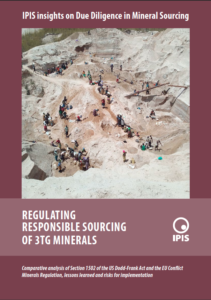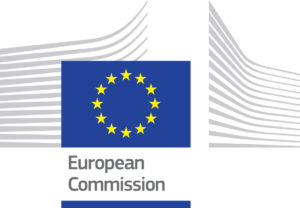This report provides a detailed comparative analysis of Section 1502 of the US Dodd-Frank Act and the EU Conflict Minerals Regulation. After a short introduction of both laws, and the context in which they were drafted, the two legislations are compared on their most important elements such as the legal requirements. While both pieces of legislation aim to help break the link between income generated by the 3TG trade and the perpetuation of armed conflict, they do differ in their requirements, the companies concerned and the geographical scope. For instance, the EU Regulation puts more emphasis on the obligation to have a good supply chain due diligence system in place while the Dodd Frank 1502 puts the emphasis on adequate reporting. Another major difference is the geographical scope: Dodd-Frank 1502 is specifically targeted towards 3TG minerals from the DRC and neighbouring countries whereasthe EU Regulation covers 3TG minerals sourced from all conflict-affected and high-risk areas.
It is important to be aware of these differences when looking at risk and opportunities for implementation. The impact of the Dodd-Frank 1502 implementation is discussed, including lessons learned, in the third part of this report. These lessons were indeed taken into account when the EU Regulation was drafted. Nevertheless, the EU Regulation will come with its own implementation challenges. These challenges and recommendations are discussed in the final section of this report.
This report is the first in a series of IPIS insights on Due Diligence on Mineral Sourcing.
This document has been produced with the financial assistance of the European Union. The contents of this document are the sole responsibility of IPIS and can under no circumstances be regarded as reflecting the position of the European Union.



